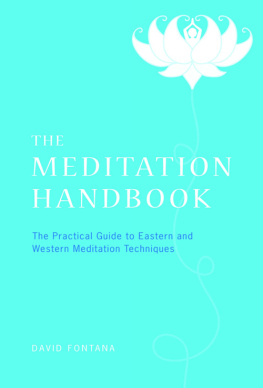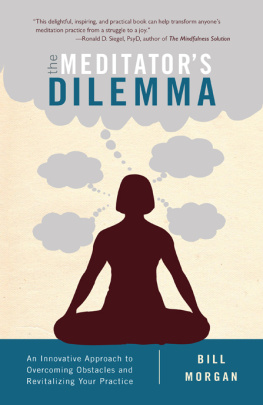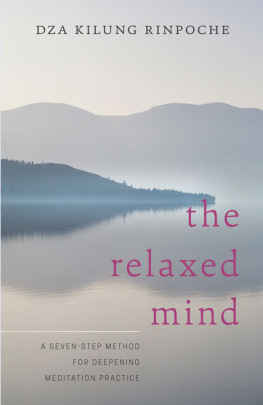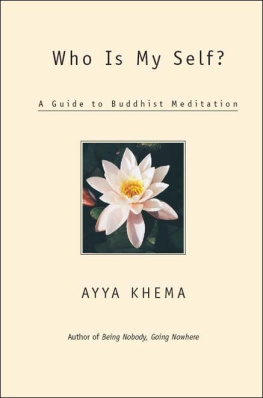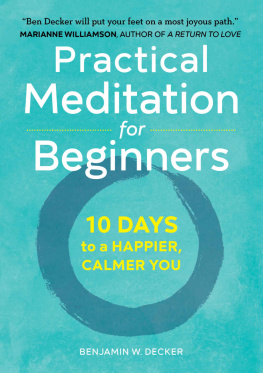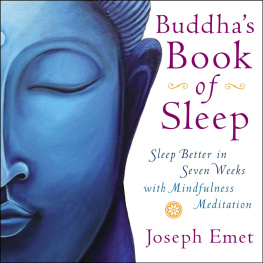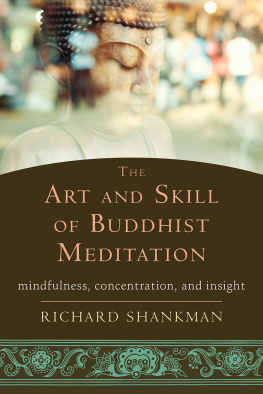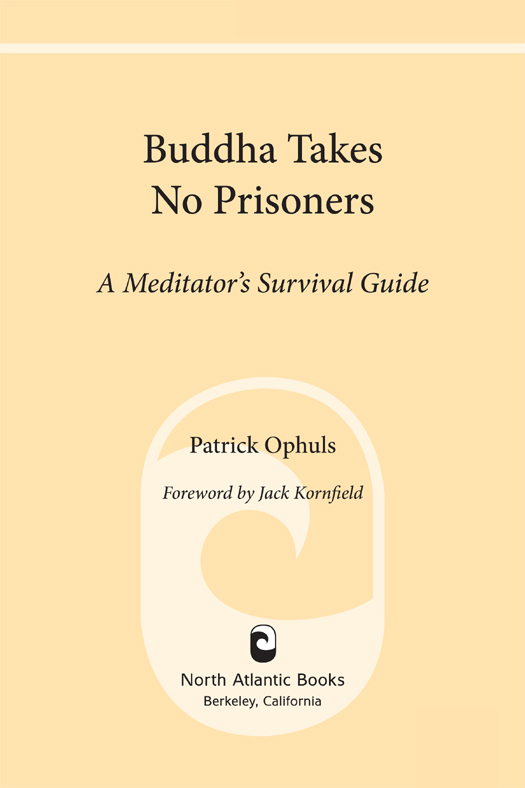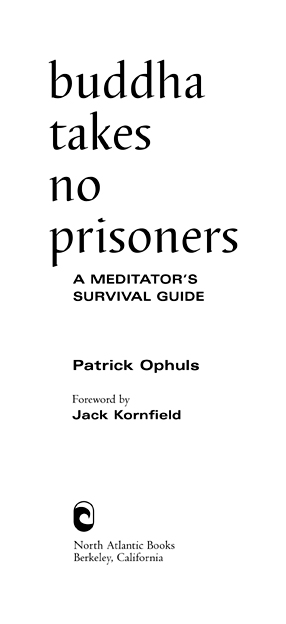Copyright 2007 by Patrick Ophuls. All rights reserved. No portion of this book, except for brief review, may be reproduced, stored in a retrieval system, or transmitted in any form or by any meanselectronic, mechanical, photocopying, recording, or otherwisewithout the written permission of the publisher. For information contact North Atlantic Books.
Published by
North Atlantic Books
P.O. Box 12327
Berkeley, California 94712
Cover design Ayelet Maida, A/M Studios
Buddha Takes No Prisoners: A Meditators Survival Manual is sponsored by the Society for the Study of Native Arts and Sciences, a nonprofit educational corporation whose goals are to develop an educational and cross-cultural perspective linking various scientific, social, and artistic fields; to nurture a holistic view of arts, sciences, humanities, and healing; and to publish and distribute literature on the relationship of mind, body, and nature.
North Atlantic Books publications are available through most bookstores. For further information, call 800-733-3000 or visit our website at www.northatlanticbooks.com.
Library of Congress Cataloging-in-Publication Data
Ophuls, Patrick, 1934
Buddha takes no prisoners : a meditators survival manual / Patrick Ophuls; foreword by Jack Kornfield.
p. cm.
eISBN: 978-1-58394-591-9
I. MeditationBuddhism. I. Title.
BQ5612.O67 2007
294.34435dc22
2006032101
v3.1
M ay this barking of an Old Mad Dog
Be for the benefit of the many,
The welfare of the many,
The happiness of the many,
And the enlightenment of all beings.
contents
foreword
Buddha Takes No Prisoners stands out among the many recent introductions to Buddhism for its wonderfully straightforward, irreverent, and colloquial new voice, both iconoclastic and honest. It reminds me of the directness of some of the Buddhist masters with whom I have studied: Mahasi Sayadaw, Ajahn Chah, and Joshu Sasaki Roshi. These teachers were wise, funny, skillful, and tough. When Ajahn Chah came to America, I served as his interpreter. Even though he understood no English, he listened carefully as I spoke. After a time he nudged me and said, Hey, youre softening what I say, arent you? Dont be afraid to tell it straight.
In this book Patrick Ophuls gives us the straight, 99-proof teachings. He explains that human transformation is the most valuable path you can take but that it is neither easy nor comfortable. It asks for an archeological dig to uncover the buried treasure of your soul, a spring-cleaning of your heart and mind, and a taming of the wild beast who lurks in the depths of your psychea tall order! Indeed, as Ophuls points out, when you first try you will fail pitifully. Yet it is the best thing you can do with your life, and with perseverance comes success.
In Buddha Takes No Prisoners Ophuls offers practical advice and fresh strong images, describing the practices of awareness and concentration as the big pasture or the cattle squeeze. To master the path, he maintains, you must sign up for the lifetime training program offered at Gautamas Gym, where you will pump spiritual iron until you are strong enough to overcome Mara (and of course, as he explains, Mara is a part of yourself).
I have known and practiced with Patrick for decades and respect his wisdom and dedication. I also appreciate his cogent critique of Western teachers, his concern that there is too much dogma, as well as too much soft-pedaling of the demanding teachings of liberation. I find it refreshing that he places the responsibility for spiritual life firmly in the hands of the necessary teacheryou.
Patrick is also realistic about enlightenment. Acknowledging that the process is usually both gradual and difficult, he nevertheless insists that the alternativebeing caught in samsarais worse, for then we are like dogs chasing our own tails or like passengers rearranging the deck chairs on the Titanic. Yet while honest about the rigors of the path, the book is also hopeful and wise. We are not developing enlightenment, we are returning to our buddha nature. When we release whatever obstructs and covers over our innate goodness, our capacity to love unconditionally expands, and our happiness increases. We become free.
In the end, Patrick Ophuls teaches what the Buddha taught, not a set of beliefs but a way. He shows us how to manifest purity in an imperfect world and to enter the marketplace with a liberated mind and an open heart. May all who read these words grow in wisdom and loving-kindness. May all beings be liberated.
Blessings,
Jack Kornfield
Spirit Rock Meditation Center
Woodacre, California
2006
not another meditation book!
With this book my aim is to convey the essence of the Buddhas dharma: what one most needs to know to practice well and how practice leads to the happiness of a liberated heart and mind (which is, after all, why the Buddha taught). But isnt that the aim of all books on Buddhist meditation? Whats so special about this one? Precisely this: it upends tradition by approaching insight meditation from the bottom upfrom the ironic perspective of a veteran student, rather than from the top-down standpoint of a proper teacher.
I mean no disrespect to the many fine books, written by outstanding teachers, that clearly and authoritatively expound Buddhist doctrines in the traditional fashion. The problem with traditional Buddha dharma, however, is that it can be abstruse. It therefore requires considerable explication to make it intelligible and useful. Yet students often flounder both intellectually and practically despite the explication. This book attempts to remedy this deficiency: it is a worms-eye view of practice that provides down-to-earth, colloquial advice to those embarking on the wonderful but challenging journey of meditation.
To be more precise, because the dharma taught by the Buddha was deeply conditioned by the social and religious setting of his time, it does not always translate well to the English language or to the modern world. (Karen Armstrongs outstanding biography of the Buddha clearly reveals this historical context and also provides those completely new to meditation with an excellent introduction to the Buddhist worldview.) It is therefore hardly surprising that traditional explanations of key Buddhist concepts and doctrines do not always get the job done. Here is a case in point: I must have listened to at least ten thousand explanations of the concept of concentrationthe state in which the mind is focused and coherentwithout once hearing it explicated in terms of the obvious modern simile, that it is like a laser. Hence I try to use up-to-date language and fresh metaphors to elucidate the traditional teachings.
All this means that I emphasize some topics, such as areas of common misunderstanding, and neglect others. (I also take a stab at applied vipassana in the form of four essays relating meditation practice to science, politics, society, and mediabut I have placed them in an appendix, because they are a bit too serious and intellectual in tone and content to fit comfortably within the main text.)
So Buddha Takes No Prisoners is a different kind of meditation bookone that is quite idiosyncratic, not to say iconoclastic, by traditional standards, because it has no pretensions to orthodoxy. It also tries to inject a note of playful irreverence into what is usually taken to be A VERY SERIOUS MATTER. I want to emphasize the word


